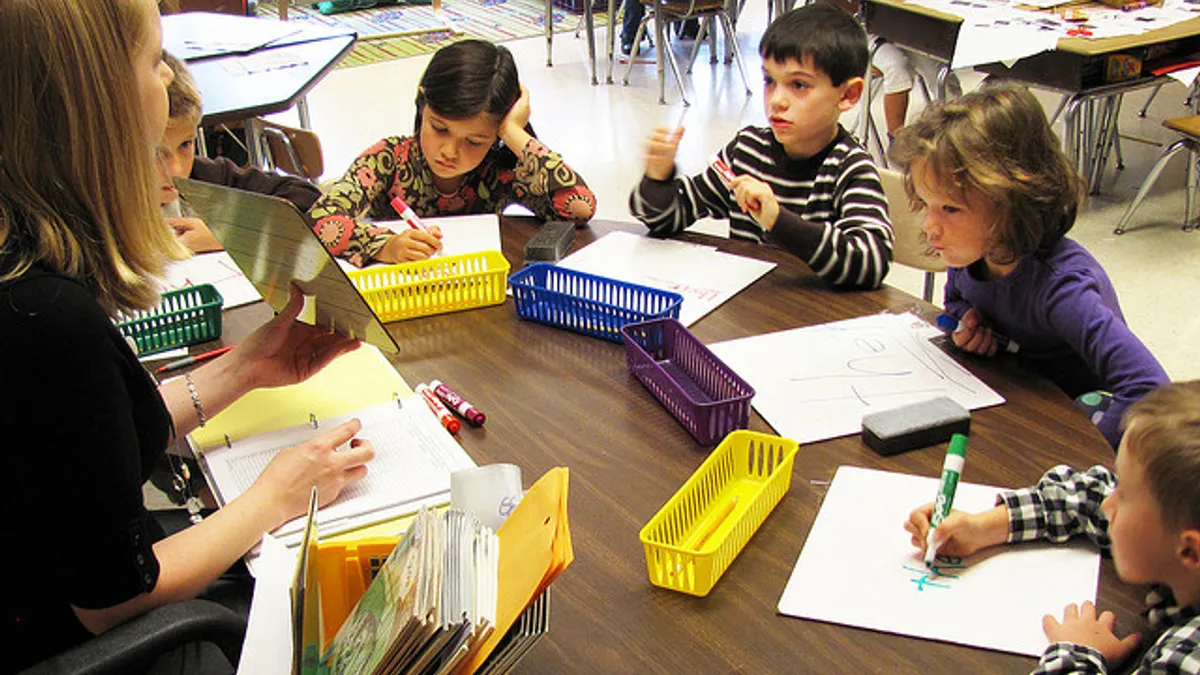Dive Brief:
- New Detroit Public Schools Superintendent Nikolai Vitti predicts that 17% of 3rd-graders in the district may be considered proficient in reading by the end of the year — an improvement over the 10% considered proficient at the end of last year, Chalkbeat reports.
- Even if that prediction comes true, Vitti said, the district is far from ready to face the consequences of a new Michigan literacy law that will take effect in the 2019-20 school year and will require the district to hold back 3rd-graders who do not meet state reading standards.
- Vitti also warned school board members that significant professional development and curriculum changes will be needed before math scores in the district will begin to significantly improve.
Dive Insight:
As educational research continues to point to 3rd-grade reading proficiency as an indicator of future academic success, many states are coming up with legislative “fixes” to address the issue. In 2012, 14 states enacted new legislation or policies that either strongly recommend or mandate retention of 3rd-grade students who are not meeting reading proficiency measures. Other states have since joined the movement. In 2016, Michigan passed its own 3rd grade reading law, and school districts are struggling to improve literacy scores before its provisions are enacted in the 2019-20 school year.
This increased focus on — and, in most cases, funding for — reading instruction is an important consideration, and one that will hopefully pay off in the future by providing a better-educated workforce and improving student chances of succeeding at the college level. However, these programs pose a dilemma for many educators in terms of impact on graduation rates. Research shows that lack of reading proficiency by the end of 3rd grade causes students to be four times more likely to drop out of school than proficient readers. However, retaining students who fail to meet reading proficiency standards, a solution included in most state policies, also negatively impacts graduation rates. In fact, some research suggests that those who repeated a grade are 60% less likely to graduate from high school.
Some states are offering solutions that make retention a last-ditch effort. For instance, under the North Carolina Read to Achieve Law, students who fail to meet proficiency measures at the end of 2nd and 3rd grades are encouraged to attended public school summer reading camps or academies that focus on reading intervention. If they do not attend or do not show significant improvement at the end of the summer, they can be placed in hybrid third-fourth grade classrooms where 4th-grade standards are taught but additional reading intervention is provided. Failure to thrive in this environment can lead to retention. The state has seen an improvement in reading scores since the implementation of the law, but districts have faced challenges as well: The chief of these is the retention of 3rd-grade teachers due to the increased pressure for results at that grade level.













